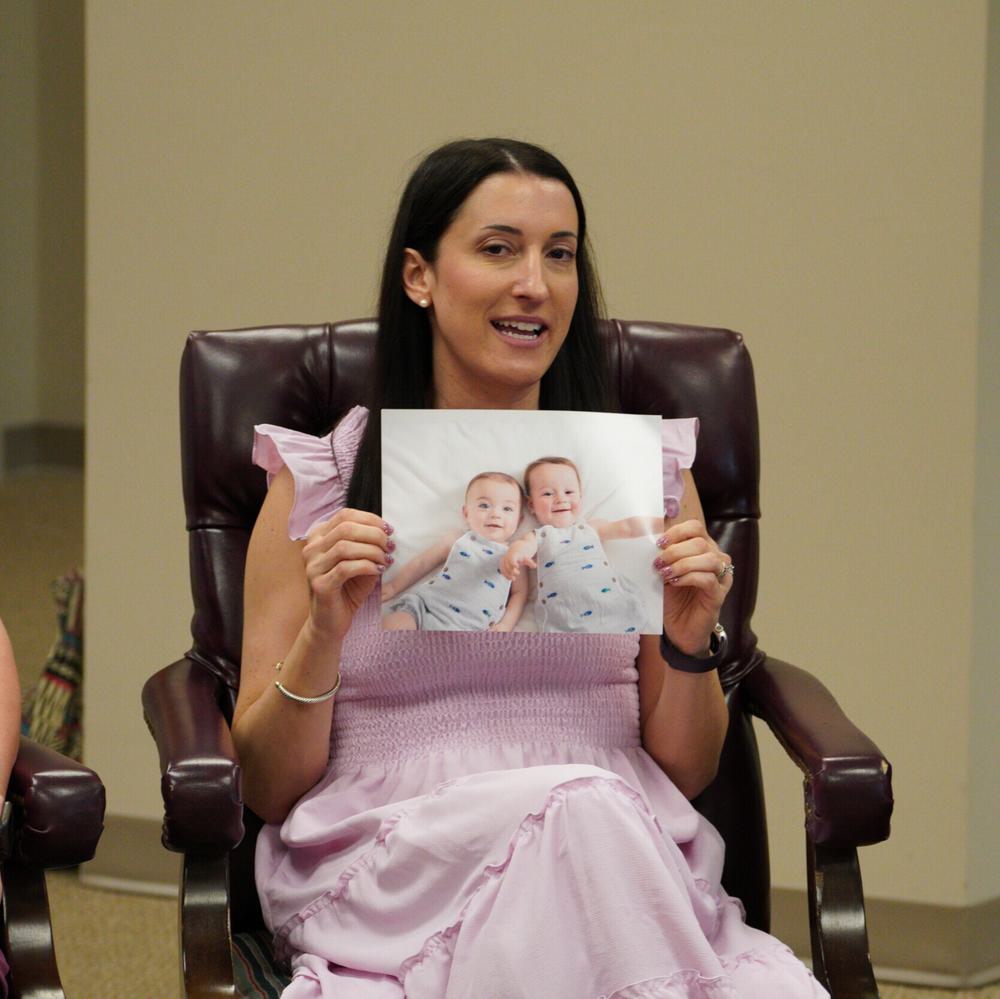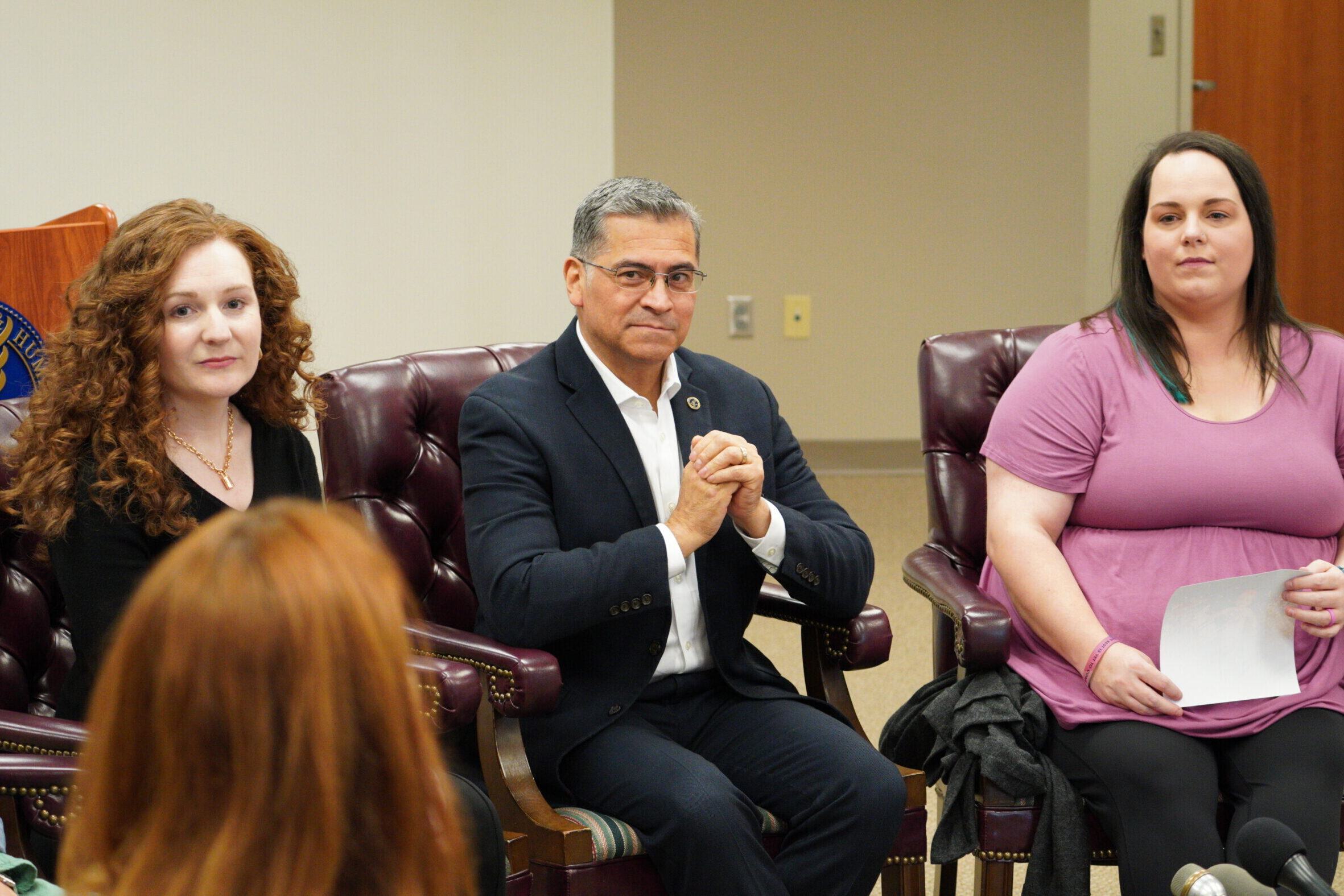BIRMINGHAM — U.S. Secretary of Health and Human Services Xavier Becerra visited Birmingham Tuesday to join a group of mothers, doctors and health care activists to address the future of in-vitro fertilization (IVF) in Alabama in the wake of the recent controversial State Supreme Court ruling that protects embryos under the Wrongful Death of a Minor Act.
In response to the ruling, IVF clinics around the state have suspended their programs, leading to nationwide outcries for the state to reach a fix.
Several IVF patients spoke Tuesday along with Becerra, sharing their experiences with IVF treatment. All had some experience with IVF, egg freezing, or uterine transplants and spoke in opposition to the Supreme Court decision.
Becerra, however, focused on the U.S. Supreme Court's move to strike down Roe V. Wade in the Dobbs V. Jackson Women's Health decision in 2022, focusing frequently on federal solutions to the decision.
"This is a state Supreme Court decision," Becerra said. "We are trying to figure out at the federal level what we can continue to do to try to be supportive of people that want to access their healthcare rights. I think it's become pretty clear that this isn't just about abortion. When Roe went down and took away healthcare rights and access, it did it to more than just abortion care. And I think that's the story I think you all can tell."
Bringing it back to Roe, when asked what federal actions could intervene in the Supreme Court's IVF decision, Becerra again pointed to legislative action at the national level to make Roe's protections federal law.
"If you think about it, Roe was so important because it established the Constitutional structure that protected healthcare access," he said. "Everything we've heard today is about getting care. If you can't access that because UAB has now stopped, you can't access the care. Even if you may have some eggs or embryos there, you can't access that. Roe would not have permitted this to occur. But the moment we broke that Constitutional right to access for that care, the states were left to do as they wish. And so, in order to have a national solution here, it has to be a national proposal. And so there are some that would reinstate essentially the protections under Roe, which would then prohibit states from trying to undermine those rights that Americans throughout the country have."
Later, after asking for media questions, Becerra interjected to tell the women present, "Let me ask a question that I wish [the media] would ask them. Did you believe that, when Dobbs was handed down, that that would impact your process of moving forward, trying to have a baby?"
Jared Robins, CEO of the American Society of Reproductive Medicine, attended the meeting and described IVF clinics in bordering states preparing to accept Alabama patients.
The women who spoke at the meeting ranged in experiences with IVF and fertility treatments. Several currently had frozen embryos in the state, others had scheduled embryo transfers canceled once clinics halted operations, and several had successful live births due to IVF.
Julie Cohen, an IVF patient, spoke at length about her experience with IVF, sharing a photo of her twin boys, who were a result of the treatment.
"In a personal and professional context, I am terrified that IVF right now is postponed in Alabama," Cohen said. "I have received text messages and phone calls from dear, dear friends, friends of friends, so many people. The ripple effect of people who have had transfers postponed [or] canceled; retrievals canceled. I have friends who are trying to physically and financially travel to Atlanta like Dr. Robins mentioned, to get treatment because they were all geared up to start treatment. I also, my husband and I, we don't know if our family is complete, and we still have embryos on ice, frozen. I guess, or maybe I should say 'children' on ice. And it is terrifying to think right now that I feel like my embryos are locked up. We are not allowed to move them. We are not allowed to transport them. I wish that every embryo meant a living baby, but I'm here today to say that every embryo is the chance of a living baby, and this recent ruling is taking away that chance for all of us."

Last week, State Attorney General Steve Marshall's office said it had no plans to pursue criminal charges against IVF clinics. The Alabama Legislature is also advancing bills to add exceptions for IVF treatment.
Robins said the Supreme Court decision did not address criminal statutes, merely civil law, leading clinics to fear potential civil action that could now be taken if an embryo dies for any number of reasons.
"From my conversations with several of the clinicians here in Alabama and the embryologists here in Alabama, is right now, they're looking at their protocols to figure out ways in which they can practice safely," Robins said. "I think it's just about, can you really create a protocol knowing inefficiencies that happen in an IVF cycle, the inefficiencies that happen in natural reproduction, frankly, is there a way to devise a protocol that would negate that civil liability?"
Several women stated they would feel uncomfortable putting their provider at risk without sufficient legal protection.
"I think, working in the medical field, I don't think I could ever feel comfortable asking my reproductive endocrinologist to do that," said Kendall Diebold, an IVP patient at UAB. "It doesn't matter if I pinky promise or write on the dotted line that I trust her with everything I have, and I do. I just don't think, if I were in her situation, I don't think I would be able to do that from her perspective. And, consequently, I don't think, as a human, I could ask her to do that for me."
To connect with the author of this story or to comment, email craig.monger@1819news.com.
Don't miss out! Subscribe to our newsletter and get our top stories every weekday morning.










